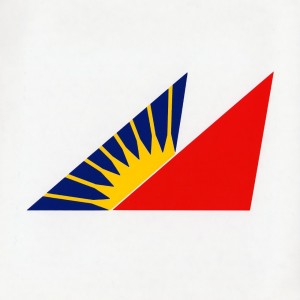San Miguel confirms talks to buy into PAL
MANILA, Philippines—Diversifying San Miguel Corp. confirmed on Wednesday a prospective investment in national flag carrier Philippine Airlines, which is controlled by the group of tycoon Lucio Tan.
“We confirm that the company was invited by Mr. Lucio Tan, the controlling stockholder of PAL Holdings Inc., to participate and assist in the re-fleeting and modernization of the aircraft of Philippine Airlines in preparation for the projected heavy influx of tourists in the coming years, which will be beneficial to the tourism industry of the country,” San Miguel said in a disclosure to the Philippine Stock Exchange on Wednesday.
“In the event a definitive agreement is concluded, an appropriate disclosure shall be made to the exchange,” San Miguel said.
But in a separate disclosure on Wednesday, PAL’s parent company PAL Holdings Inc. said: “…There is presently no discussion on possible investment by San Miguel Corp. in PAL Holdings Inc.”
While SMC is interested in the airline operations of PAL Holdings’ subsidiary Philippine Airlines, it’s uncertain whether the conglomerate is keen on investing in the parent company level. Nevertheless, shares of PAL Holdings have risen in the last two days as the entry of a new investor is seen to boost its operations.
On Wednesday, shares of PAL Holdings were up by 0.86 percent to P7.03 per share, giving the holding company market capitalization of P37.79 billion. Its share price surged by 15.8 percent ahead of reports that San Miguel president Ramon S. Ang was in the advanced stage of negotiations to buy into the airline.
On the other hand, SMC shares were down by 0.51 percent to P117.50 per share on Wednesday, giving it a market cap of P276.75 billion.
Other sources said the tycoon had been willing to let a new investor come in for at least $1 billion but apart from equity, this would include part of re-fleeting costs.
PAL president and chief operating officer Jaime Bautista said the company’s controlling shareholders led by taipan Lucio Tan were not actively looking for new investors to fund expansion plans.
“There is no search,” he said, adding that the reported signing of a memorandum of agreement between San Miguel Corp. and PAL were unfounded.
Bautista admitted that several parties, including San Miguel, have approached PAL officials over the possibility of acquiring a stake in PAL. Other interested groups include foreign airlines and local business groups.
“[But] I am not aware of any signed documents [with San Miguel],” he said.
Earlier, PAL revealed that it planned to replace several of its aging planes with more efficient new ones in a bid to cut costs amid high fuel prices. Covered by the plan are PAL’s fleet of Boeing 747 Jumbo Jets, long-range Airbus 340s, mid-range A330s and short-range A320s.
Industry sources said San Miguel, through its president Ramon Ang, had presented a very good offer that was accepted “in principle” by the Tan group before Christmas.
The airline business is in line with San Miguel’s diversification into infrastructure-building. San Miguel is investing about $300 million to modernize and set up new tourism amenities at the Godofredo P. Ramos airport in Caticlan, the main gateway to the world-famous Boracay Island. The conglomerate has also expressed interest to participate in the public bidding for the public-private partnership airport contracts for Palawan, Bohol and Caraga (Agusan).
Ang, himself a pilot, has been in on-and-off talks to invest in PAL over the last few years.
His business rival, First Pacific Co. Ltd. executive director Manuel V. Pangilinan, was likewise looking at PAL and was earlier reported to be the front-runner in the race to acquire PAL. Pangilinan earlier offered $700 million to take over the airline, industry sources said.
PAL earlier got an imprimatur from Malacañang to spin off its catering, ground handling and call-center reservations units, making it easier for the airline to attract an investor. The spin-off plan is a measure intended to stabilize PAL’s finances due to the lingering effects of the global recession.
Originally posted at 1:18 p.m.

